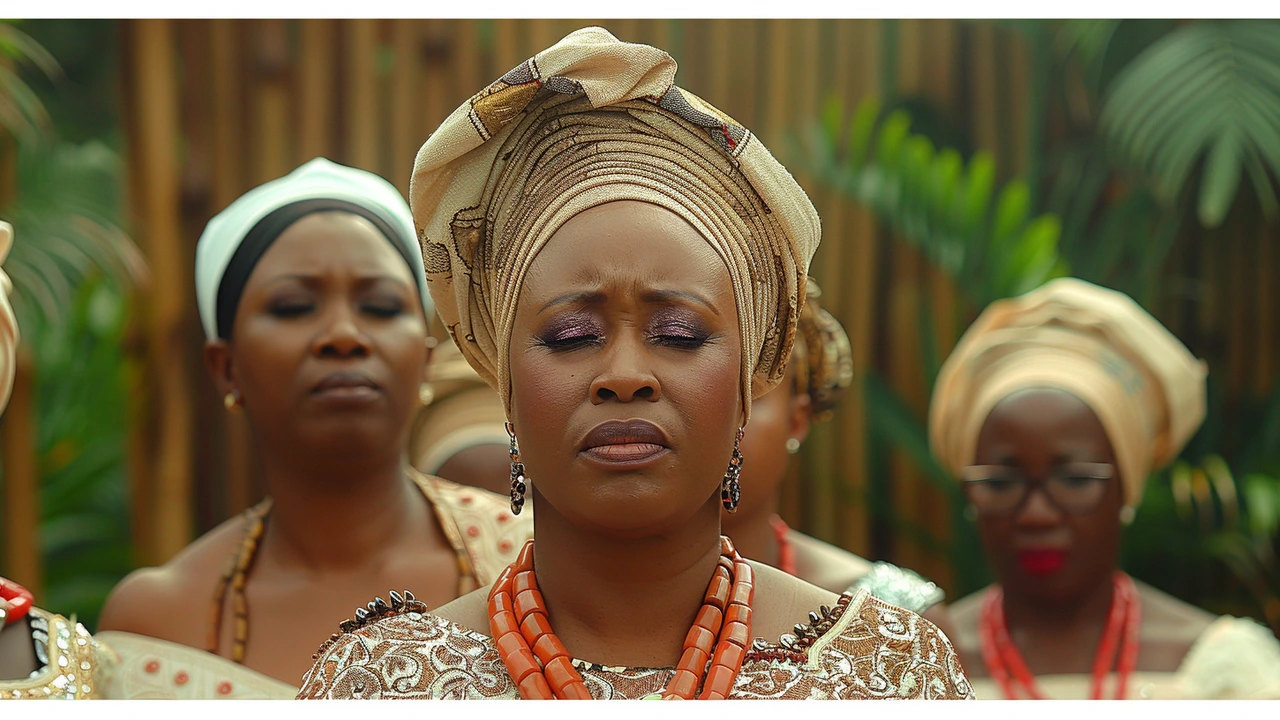Kehinde Bankole Celebrates the Strength of Women's Unity in 'Funmilayo and Her Women'
Nigerian actress Kehinde Bankole recently shared insights into her transformative experience portraying the esteemed activist Funmilayo Ransome-Kuti in the film 'Funmilayo and Her Women'. Bankole emphasized the profound influence of collective action and the exceptional strength derived from women's unity. Her words resonate deeply, underscoring the perpetual relevance of solidarity among women.
The Essence of Funmilayo Ransome-Kuti's Leadership
In bringing Funmilayo Ransome-Kuti to life on screen, Bankole delved into the intricate layers of a woman who was not just a leader but a visionary. Funmilayo's role in founding the Abeokuta Women's Union (AWU) showcased her commitment to fostering solidarity. This organization was not merely a group; it was a movement that galvanized women to stand firm against oppression and champion their rights. It was, in essence, a testament to the indomitable spirit and power of women united for a common cause.
Funmilayo’s unwavering dedication to the cause of women’s rights and liberation was a bold statement in her time. She wasn't afraid to challenge the status quo, and this fearlessness is something that Bankole found incredibly inspiring. The AWU, under Funmilayo’s leadership, organized protests, led campaigns, and engaged in constructive dialogue with authorities, achieving significant progress for women's rights in Nigeria.
A Collaborative Effort Among Notable Actresses
Bankole expressed her profound admiration for her colleagues who helped bring this monumental story to the screen. Actresses like Joke Silva, Bukky Ogunote, Oluwayemisi Esther, Omowunmi Dada, Bikiya G Douglas, Yewande Osamehin, Adunni Ade, Folake Coker, Tracey George, and Iyinide Ayo Olumoko played pivotal roles in this narrative. Their collective efforts underscored the film’s core message: the incredible impact of women working together.
These actresses brought their unique talents and perspectives, creating a dynamic and rich portrayal of Funmilayo’s life and legacy. Each performance was a tribute to the strength and resilience of women who, like Funmilayo, dared to dream and act boldly. This collaborative spirit mirrors the very principles that Funmilayo herself championed, making the film not just a historical recount but a call to action for modern-day women.
An Extraordinary Experience with Bolanle Austen-Peters' Direction
Directed by Bolanle Austen-Peters, 'Funmilayo and Her Women' is more than just a film; it is a powerful narrative interwoven with themes of unity and resilience. Austen-Peters’ direction ensured that every scene was not only reflective of history but also emotionally engaging. Her meticulous approach to storytelling brought out the best in each actress, creating a captivating and authentic depiction of Funmilayo's journey and the impact of her leadership.
Bankole described the experience of working under Austen-Peters as







Abhishek Deshpande June 23, 2024
Funmilayo Ransome-Kuti wasn't just a leader-she was a systemic disruptor. The AWU didn't just protest; it restructured fiscal accountability in local governance, forced tax reforms, and created the first women-run cooperative credit system in Western Nigeria. And yes, the film captures the spirit, but it glosses over the fact that Funmilayo was also a trained teacher who used pedagogy as a tool of resistance-literally turning marketplaces into classrooms. The real genius? She weaponized literacy. Women who couldn't read before were writing petitions in Yoruba by 1947. That’s not empowerment-that’s revolution.
vikram yadav June 24, 2024
Honestly, this is why I love Nigerian cinema now-it doesn’t just entertain, it educates. I remember my grandmother telling me stories about the women who blocked the gates of the Alake’s palace with their pots and baskets. They didn’t need megaphones. Just unity. And now, seeing actresses like Joke Silva and Kehinde Bankole bring that to life? It’s like history finally got its proper soundtrack. Also, Bolanle Austen-Peters? She’s the reason African historical dramas stopped being boring. She treats every frame like a museum exhibit-but one you can feel in your bones.
Tamanna Tanni June 26, 2024
I cried watching the scene where they burn the tax records. No words needed. Just silence. Then the drumming. Then the chant. Perfect.
Rosy Forte June 28, 2024
The performative solidarity in this film is, frankly, aesthetically reductive. While the narrative gestures toward intersectionality, it fails to interrogate the class dynamics within the AWU-how many of these women were actually literate elites versus market traders? The film aestheticizes resistance through the lens of bourgeois femininity: silk headwraps, deliberate eye contact with colonial officers, poetic monologues. Where is the sweat? The hunger? The trauma? Funmilayo didn’t just lead women-she led *survivors*. And reducing their struggle to cinematic grandeur is, in essence, epistemic violence dressed in period costume. We need decolonial praxis, not pretty reenactments.
Yogesh Dhakne June 30, 2024
Man, I just watched this last night. The part where the women march with the babies tied to their backs? Chills. No music. Just footsteps. And then one of them starts singing that old Yoruba lullaby. I didn’t even know I was holding my breath until the screen went black. This isn’t a movie. It’s a memory we all needed to wake up to.